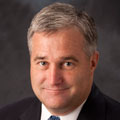New grassroots focus: growing a national network of champions
New grassroots focus: growing a national network of champions
- March 8, 2013 |
-
 LORI SHARN BRYANT
LORI SHARN BRYANT

How some groups boost efforts on Capitol Hill with more local relationship building and advocacy
| Related content Building an advocacy team Spring fly-in calendar |
Email blasts and annual fly-ins aren't enough anymore. Some groups are ratcheting up their grassroots game by building a national network of advocates, trained and empowered to deliver a message at home and in Washington, D.C.
As an added bonus, these programs can enhance members' connections to an association, strengthening the group overall.
 Aitken |
The Society for Human Resource Management launched a five-year effort in 2010 to recruit and train an advocacy team (known as the "A-Team" for short) of HR professionals, including a committed "Advocacy Captain" in every one of the 435 congressional districts. These captains are responsible for maintaining year-round relationships with their elected representatives.
"One of our strongest assets [is our] membership base," said Mike Aitken, SHRM vice president of government affairs. "We came up with the idea of building out a kind of evergreen, localized group of volunteers in each congressional district. And it took off from there."
More than 200 SHRM members will hit Capitol Hill offices March 13, capping off its annual Employment Law & Legislative Conference. Advocacy team members will get to deploy their training, network with other team members, and help recruit more advocates among conference attendees.
At a recent national grassroots conference, people talked about how "to get more empowered, smarter, real advocates that go beyond this form-letter bonanza that nobody finds really effective anymore," said Rikki Amos, director of U.S. public affairs practice at the Public Affairs Council.
"Everything used to be very static. Here's my newsletter. Here's my webpage. Here's my email that's going to go out every once in a while when I have a call to action and I need you to do something," Amos said.
Now, there's more back-and-forth communication, Amos said. And more emphasis on giving advocates the tools and then "stepping out of the way and letting them run with it."
Making a bigger impact
 Ecker |
About 300 pharmacy advocates will be on Capitol Hill March 13-14, but that's only one component of the NACDS RxIMPACT Program. The National Association of Chain Drug Stores initiated the program in 2009 to build and train a grassroots network.
Thousands of people have registered to be part of the RxIMPACT team, including pharmacy executives, pharmacists, patients, in-store staff, and pharmacy school students and faculty, said Heidi Ecker, director of government affairs and grassroots programs. (NACDS declined to give a more exact number.)
NACDS places a strong emphasis on education, training people through "baby steps" to become more comfortable with the policy process, Ecker said. One of the cornerstones of the program is inviting members of Congress to tour local pharmacies. Ecker said 52 tours were conducted in 2012.
"My objective is not to have you send a letter one time or go to a meeting one time," Ecker said. "I want you to feel like you're part of a community, and that we're depending on you to continually communicate on behalf of pharmacy."
The Water Environment Federation is in the early stages of its effort to create a network of water professionals in every state and congressional district. Nearly 34,000 people belong to WEF member associations in the U.S.
About 25 people have signed up to be Water Advocates so far, said Amanda Waters, WEF general counsel and director of public advocacy and outreach. The program will be promoted at the April 16 "Water for Jobs" Infrastructure Summit and the April 17-18 Water Matters! Fly-in.
An advocacy guide and toolkit are being developed now, Waters said. Online training will begin in August. Workshops will be conducted in October at WEF's huge annual technical exhibition and conference in Chicago.
The network will enable more two-way communication, Waters said: "It's going to be a win-win situation. We'll be better informed and educated about the issues members are facing, and they'll feel more connected to what we're doing here."
SHRM does not have a political action committee, but it does have 588 U.S. chapters representing 263,000 members. More than 8,000 people have joined the A-Team, and about 190 people have made two-year commitments to be Advocacy Captains, said Chatrane Birbal, senior associate for member advocacy.
SHRM expanded its advocacy staff to support the effort, hiring Birbal in November. Senior Associate for Member Advocacy David Lusk spends much time on the road, recruiting and training.
The March 10-13 conference in Washington includes an advocacy boot camp, and an A-Team reception.
"We're still learning as we go," Aitken said. But having advocates working back home "really complements quite well your advocacy efforts in Washington. … It's a much more powerful argument."
